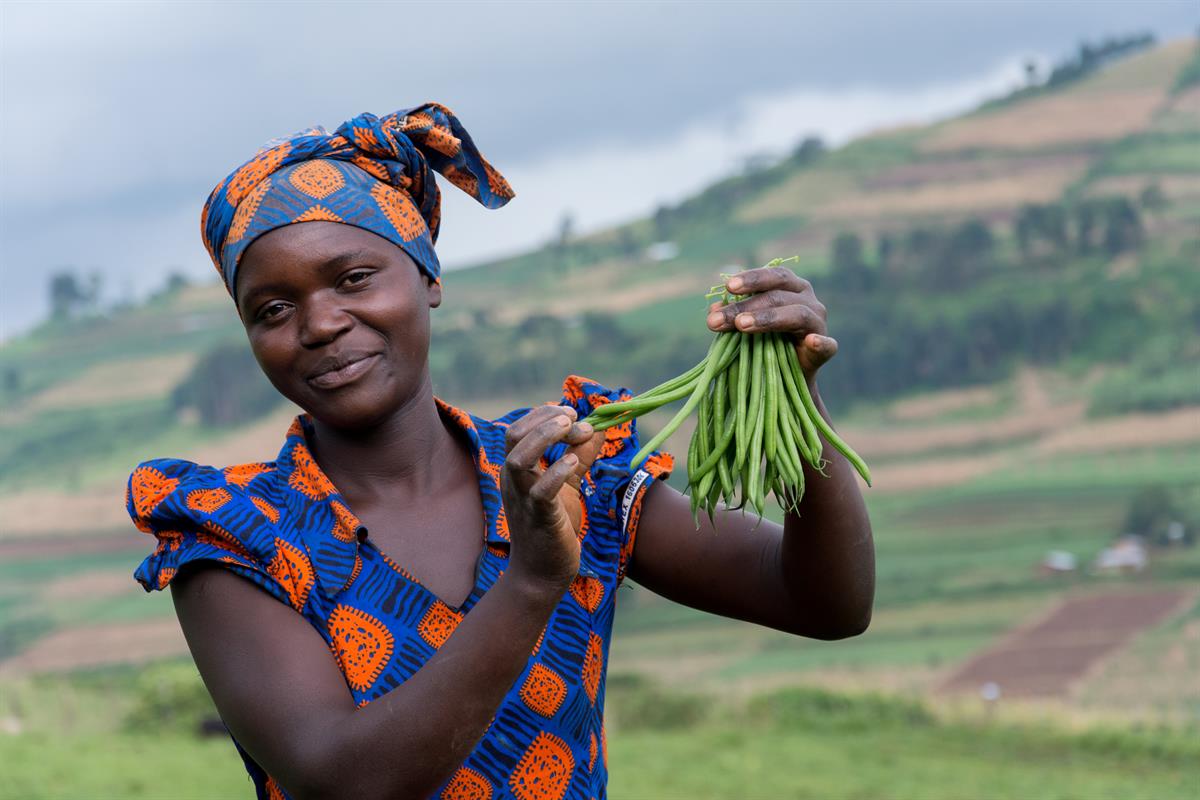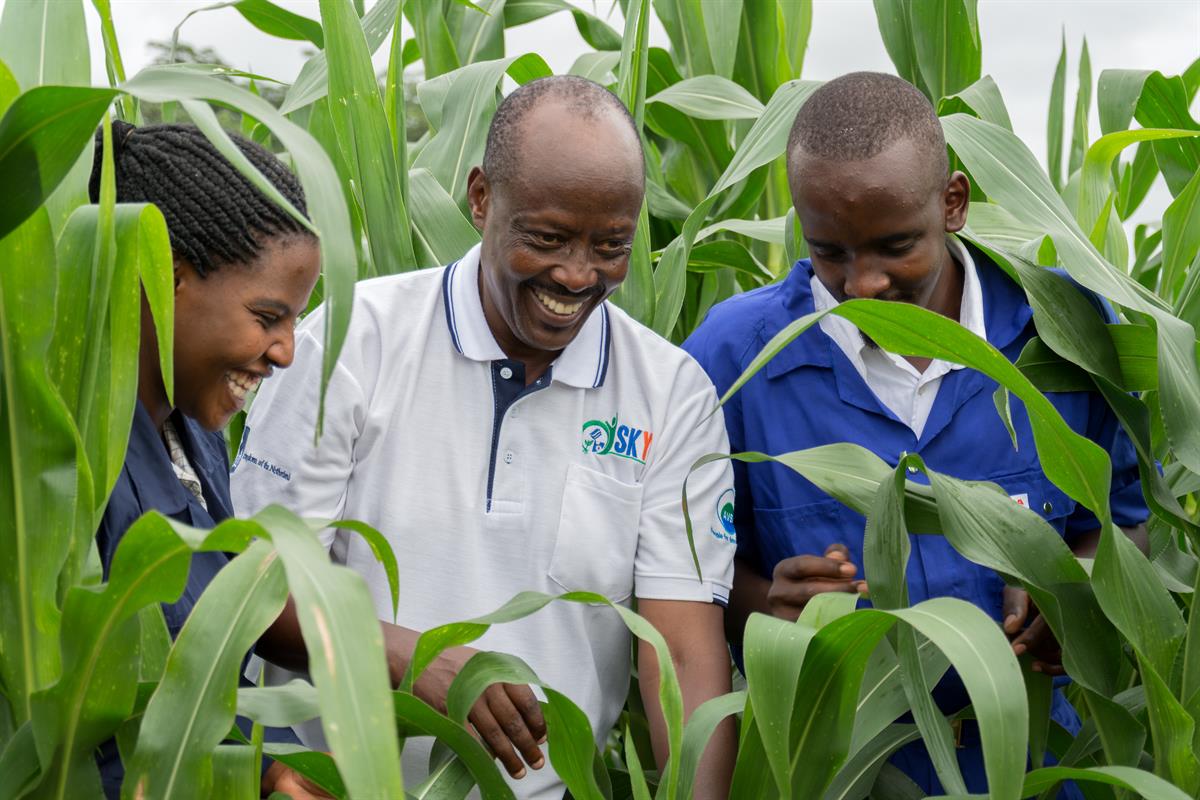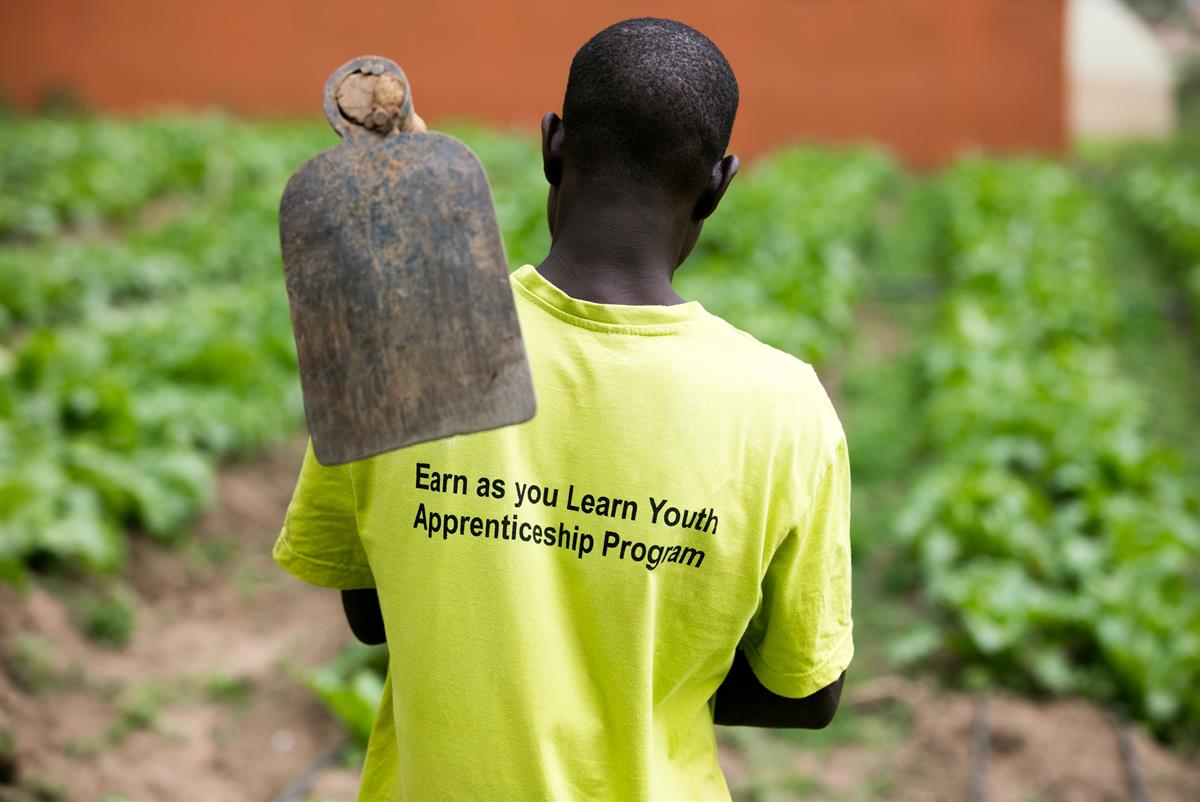By Samuele Otim Rizzo - SAY project Chief of Party
I was born in Uganda, where I lived until I was 14 years old. My name, Otim, means “to be born away from the original village”. I moved back to Uganda in 2004, right after university, to get a job. My whole life is here. Uganda is one of the youngest countries in the world, but still the unemployment rate is very high.
In this extremely fertile and productive land, agriculture and food supply chain could provide young people with many employment and profit opportunities, that could go far beyond simple subsistence farming. Since 2015, AVSI has been working to improve the agricultural skills of young people, as well as to promote their entrepreneurship, thereby preparing them to handle the challenges of climate-smart agriculture.
Between 2015 and 2020, thanks to the “Sky - Skilling Youth for Employment in Agribusiness” project, we have trained 10 thousand young people, of whom 90% either has been hired for a job or is self-employed. Now it is time for the “Say - Skilling in Agripreneurship for enhanced Youth Employment” project to follow this path and reinforce the attention towards a “zero waste” policy, along with the operative partnership with companies in the industry. Its aim is that of getting another 15 thousand young people involved.
The SAY project
Objective: to increase the skills of young people in agriculture, creating jobs in the agri-food chain. Country: Uganda
Budget: 12 million euros, of which 10 million from the Dutch Embassy in Uganda
Staff: 34, including 2 expatriates
Beneficiaries: 15,000 young people
The two key points of our approach are precisely the partnership with agricultural enterprises and the agripreneurship, namely the willingness to train farmers capable of working not only in subsistence farming, but also for the business side and the value chain. It is a turning point in the development of the country and the possibility to interact with international markets, starting with the Dutch one.
We have studied the market and identified the highest-income products, i.e. vegetables that require a short-production cycle, such as onions, tomatoes and green beans. With the appropriate techniques (like small greenhouses and simple irrigation systems), they can even be cultivated in the dry season, when their price on the market is very high.

It is fundamental that theoretical and practical knowledge go side by side during the entire productive cycle, therefore we have partnered with 65 local farms from four different regions.
Entrepreneurs can also convey to young people something extremely important: passion.
Their personal and business stories prove that it is possible to start from scratch and create job and profit opportunities, both for oneself and for others. Enterprises are the first to be interested in collaborating with the young people they have trained: they might either hire them or make commercial agreements that allow the new entrepreneurs to become their suppliers.


The earn-as-you-learn approach provides that young people are given a small sum at the end of their vocational training. They can use it to rent a piece of land and start their business.
It is not easy to make the stories we witness fit into the reporting of the project. For example, the one I am about to tell: Bashir’s story. Five years ago, he used to drive boda bodas, motorcycle taxis that are very common here in Uganda. He used to earn 10-15 euros per day which were enough for livelihood, but not enough for thinking about the future. He heard about our project and contacted us: “I’m selling the boda boda”. He now owns 15 acres of land and produces passion fruits, making around 60 thousand euros a year. He built a house, and he can afford to send his children to school, along with those of some of his relatives. From being a beneficiary, he became a partner of our project, thus training and hiring other young people. A different kind of process has started.